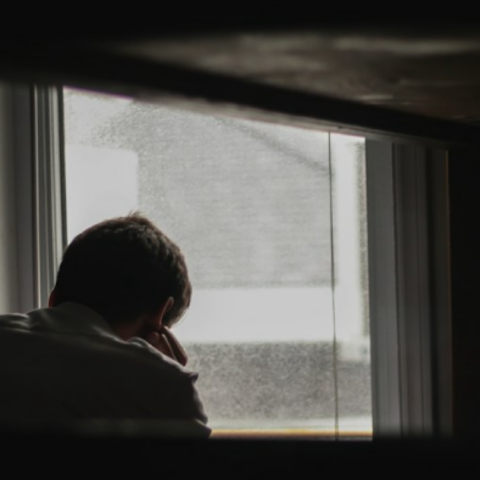
Euthanasia for mentally ill in Canada delayed until 2027 as ‘health system not ready’
Plans to expand euthanasia to people suffering solely from mental illness are on pause in Canada, health officials said this week – with legislation introduced to delay the policy change for three years.
The Canadian government has delayed the plan to introduce medical assistance in dying (MAiD) for those whose sole qualifying health condition is mental illness, with some sources attributing the delay to a lack of adequate psychiatric care in the country.
The policy had been expected to come into effect this coming 17th March; it is the second time the expansion has been delayed, after the pans were halted last year for one year, to this March.
Some opponents of the liberalisation of Canada’s assisted suicide regime attribute the problem to a lack of adequate psychiatric care in the country, and a lack of doctors willing to take part, the New York Post reports.
A statement from Canada’s Minister for Health said it was clear “the health system is not yet ready” for MAiD in the case of mental illness.
"Significant progress has been made in supporting practitioners in assessing MAID eligibility in complex cases. However, after extensive consultations with key health system partners and provinces and territories, and the report of the Special Joint Committee, we have heard loud and clear that the health system is not yet ready for MAID where the sole underlying condition is mental illness,” Minister Mark Holland said, adding:
“By introducing this legislation, we are going to ensure that our MAID system is measured, thoughtful and compassionate, while we work with partners to ensure future readiness."
This extension would provide “more time for provinces and territories to prepare their health care systems, including the development of policies, standards, guidance and additional resources to assess and provide MAID in situations where a person's sole underlying medical condition is a mental illness,” the Canadian government said.
Mr Holland also said the delay would “provide practitioners with more time to participate in training and become familiar with available supports, guidelines and standards.”
While concerns have been raised across the country, supporters of the liberal expansion have expressed disappointment, including advocacy group Dying with Dignity, which said that it was "disheartened" about the delay, saying it represents a "denial of constitutional rights for suffering people across Canada".
Assisted suicide through MAiD has been legal in Canada since 2016, under certain conditions and legal criteria, following a landmark decision by the country’s Supreme Court.
In February 2023, the Special Joint Committee on Medical Assistance in Dying tabled its report, Medical Assistance in Dying in Canada: Choices for Canadians, which included the recommendation that the practice be legalised where a mental disorder is the sole underlying condition.
Credit: Unsplash (Andrik Langfield)
In October 2023, the committee was reestablished, and it was announced that medical assistance in dying where mental disorder is the sole underlying medical condition was mental illness would be included in the exemption for MAID in the Criminal Code as of 17 March 2024.
It heard testimony from 21 witnesses, including medical and legal experts, practitioners, and mental health organisations as well as representatives from Health Canada and the Department of Justice. Thousands of written submissions were also received, which the committee said demonstrated “the great interest of Canadians in the difficult issue of MAID.”
An analysis of official data showed that there was a 35 per cent rise in euthanasia deaths in the last recorded year of figures – 2022 – when some 13,500 euthanasia deaths took place. The country’s broadening euthanasia regime has attracted international attention, and has come under fire from some within the liberal nation.
Conservative MP Ed Fast is one such critic, who posed the question, “Have we gone too far and too fast with Canada’s assisted suicide programme?” when proposals were announced to expand the regime to include those suffering from mental health problems.
“Will we evolve into a culture of death as the preferred option for those who suffer from mental illness or will we choose life?” Fast asked.
'Lack of readiness to proceed'
A report published in January by the Canadian Parliament’s Special Joint Committee on Medical Assistance in Dying, chaired by MP René Arseneault and Senator Yonah Martin said it heard “conflicting views” about Canada’s readiness for assisted suicide in the case of mental illness (MAID MD-SUMC).
“While some witnesses said Canada is clearly ready, others stated that preparations are still in progress, or that the state of the country’s readiness for 17 March 2024 is difficult to ascertain. Still others felt that readiness for MAID MD-SUMC will never be attained,” the report said.
Last month’s report concluded that while “practitioners have worked very hard to prepare for MAID MD-SUMC and have made significant progress,” the committee also heard “significant testimony that some stakeholders perceive a lack of readiness to proceed with MAID MD-SUMC at this time.”
The committee also heard that there was a lack of professional consensus, because many psychiatrists “do not support the practice of MAID MD-SUMC“ – while some witnesses told the committee that “there is no way to distinguish requests for MAID MD-SUMC from suicidality.”
Doctor K Sonu Gaind of the University of Toronto, one of those testifying before the committee, said that “worldwide evidence” shows that predictions on the incurability of mental illness are “wrong over half of the time.”
“This expansion is not so much a slippery slope as a runaway train,” the psychiatrist and professor said.
“The government has plenty of signs we should not be proceeding. You can choose to go ahead, but you can’t pretend you weren’t warned. We are not ready.”
'Inadequate safeguards to protect vulnerable
Protecting the vulnerable was also a key concern among witnesses, who said the change in policy could potentially impact upon vulnerable groups, including women, Indigenous people, people with disabilities, people living in poverty, and people in geographically underserved areas.
The committee heard that “there are inadequate safeguards to protect vulnerable groups that are disproportionately affected by mental disorders.” It was also told that the delivery of MAID MD-SUMC at this time “risks exacerbating health inequities.”
The Centre for Addiction and Mental Health (CAMH) is Canada's largest mental health teaching hospital, meanwhile, has added a statement to its website which reads:
“The federal government has introduced legislation to delay the implementation of MAiD for people whose only underlying medical condition is a mental illness until March 2027. This announcement came following the release of the Special Joint Committee on Medical Assistance in Dying. CAMH's submission to this Committee recommended a delay. “
“Changes to the law around Medical Assistance in Dying (MAiD) in Canada have been delayed.”
CAMH had previously said that Canadian doctors and nurses were concerned because they had not been adequately trained to determine whether a patient suffering from mental illness would qualify for euthanasia.
Maria Maynes
This article was first published in Gript and is printed here with permssion
Featured
- Man jailed for 9 years for forced abortion
- Abortion coercion has arrived in Ireland – the NWC are silent
- Review of at-home abortions 'needed after coercion case'
- French Govt to remind 29-year-olds of biological clock
- Huge factor in decline in primary school numbers ignored
- Germany Denies Promoting Abortion Abroad—While Funding Pro-Abortion NGOs
- Govt don’t oppose Coppinger abortion bill at 1st stage
- March for Life: Vance, the White House, and a Divided Pro-Life Movement
- Paris’ Annual March for Life Puts Euthanasia in the Spotlight
- Britain’s seemingly limitless abortion rate
- The importance of the work carried out by Every Life Counts
- Puerto Rico officially recognizes unborn children as ‘natural persons’
- Assisted suicide laws stalled by “complex” legal issues
- Yes, that hideous celebration of 300 abortions is real
- White Crosses Memorial: Dungarvan once again pays its respects to our aborted babies
- Josiah: Abortion Survivor
- Rally for Life 2025
You can make a difference.
DONATE TODAY
